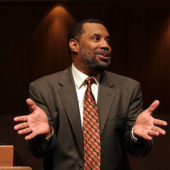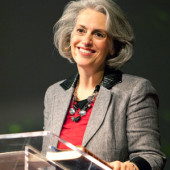Do you consider your emotions untrustworthy and unbiblical? Marc Alan Schelske says that contrary to popular belief, our emotions are actually given to us by God for a purpose. Therefore, we can actually gain wisdom by listening to what our emotions are trying to tell us.
First, it’s important to understand that emotions themselves are neither good nor evil.
“Emotions in themselves are just information. In our culture, we get the feeling our emotions are ‘us.’ That’s why we can sometimes get really entangled in them, we think our feelings are absolute truth. Other times we think our emotions are just bad, something we have to avoid – so we push them aside and don’t think about them.”
Both of these mindsets about emotions are flawed. Marc says instead of ignoring or suppressing emotions, we should acknowledge them and seek to understand why we feel the way we do. In other words, our emotions are trying to tell us something. To illustrate, he compares our emotions to the check engine light of a car.
“The check engine light is not moral or amoral, it’s not good or evil, it’s just there to give you information so you can have a successful driving experience and be safe.”
In the same way, the purpose of our emotions is to give us information so we can have a successful life experience.
“Our emotions give us information about something that is going on in our inner circumstances or in the world around us. When the warning light goes off, what’s the point of the warning light? You’re supposed to stop and say, ‘oh the warning light is on, why is that happening? Why is that light flashing right now?’”
Listening to our emotions doesn’t mean we do whatever they make us feel like doing. It means we acknowledge they exist and ask ourselves one simple question, “Why?”
Marc shares an example of putting this into practice in his own life.
“I’m married and I have a wife. Say I’m out and about, and I see a woman that I’m attracted to. Does that mean my emotions are leading me astray? No, my emotions are not telling me to have an affair; my emotions are telling me I’m drawn to this person for some reason. If I can stop and reflect on that, I might see something helpful. I might discover a lack of intimacy in my marriage that needs my attention. I might discover I’m feeling lonely and I need to attend to that, not by doing something immoral, but by recognizing that truth.”
Our emotions don’t cause us to sin. We fall into sin when we respond to our emotions in an unhealthy way. It often feels like our emotions do more harm than good. However, if we learn to listen to what our emotions are telling us and respond in a Christ-honoring way, our emotions can actually work for us.
Marc Alan Schelske is a husband, dad of two, writer, speaker, hobbyist theologian, recovering fundamentalist who drinks tea & rides a motorcycle. He serves as the teaching elder at Bridge City Community Church in Milwaukie, Oregon where he has served for 18 years.
Marc Alan Schelske on discovering the purpose and power of your emotion


















